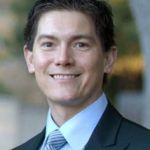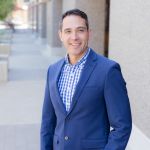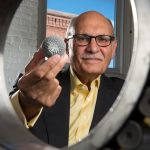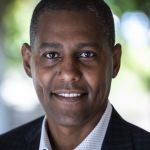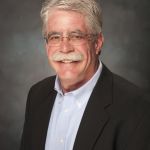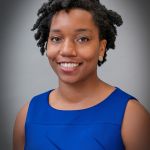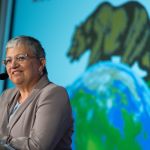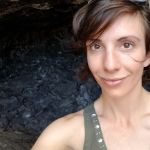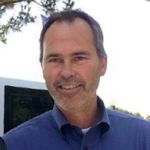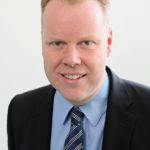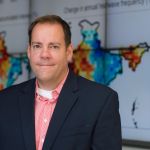Seminars and Events
-
![]()
Sona Coffee
Environmental Programs Administrator, Public Works and Transportation Department, City of Irvine
Environmental Programs, City of IrvineTitle: Sustainability and Innovation in Irvine
Time/Date: TBD
AbstractComing Soon
BioSona Coffee is a sustainability professional that works with local governments to help transform cities into environmentally sustainable communities. She started her environmental public service career as the Environmental Manager for the City of Manhattan Beach, and is now the Environmental Administrator for the City of Irvine where her work is leading the climate action efforts in Orange County.
Sona is a proud USC alum and earned her undergraduate and graduate degrees from the Price School of Policy, with an emphasis in environmental policy. She is passionate about educating the public on climate emergency issues, implementing clean energy programs, and creating policies that prevent plastic pollutants from entering the marine environment. She also enjoys volunteering on the Sustainable City Commission for her hometown of Long Beach.
Host: TBD
Past Events
-
![Thomas Jaramillo smiling wearing dark suit with blue shirt and tie]()
Thomas F. Jaramillo
Associate Professor, Department of Chemical Engineering, Stanford University; Associate Professor, Photon Science,SLAC National Accelerator Laboratory; Director, SUNCAT Center for Interface Science and Catalysis
Title: Designing Catalysts and Chemical Processes for Global Sustainability
Time/Date: 11am – 12pm on Thursday, June 16, 2022
AbstractOur modern world relies upon chemical transformations that benefit the lives of billions. These transformations can be found across many sectors, including transportation, heating and cooling, electricity, food production, and manufacturing, among many others. To date, fossil resources have provided the majority of the energy demanded by the global economy, and thanks to human ingenuity over decades (and centuries) we have been able to develop large-scale chemical processes that can make use of the fossil resources to provide for many across the globe in a cost-effective manner. However, there are many challenges to the current paradigm, as (1) modern processes are generally not sustainable, and (2) while they provide for billions, there are billions of others who have minimal access to the modern energy system.
This talk will describe efforts envisioned for a future paradigm, particularly on the development of new catalysts and new processes that can make use of renewable resources in the production, storage, and utilization of important molecular products. Examples include hydrogen (H2) production from water, CO2 conversion to carbon-based fuels and chemicals, and renewable pathways to NH3 fertilizer production, among others. A key focus will be on the fundamental design and development of catalyst systems that can execute desired chemical transformations with high activity, selectivity, and durability, plus the integration of such catalysts into devices that can achieve high-performance, paving the path ahead for new, sustainable technologies.
BioAssociate Professor, Dept. of Chemical Engineering, Stanford University Associate Professor, Photon Science, SLAC National Accelerator Laboratory Director, SUNCAT Center for Interface Science and Catalysis
Thomas Francisco Jaramillo is an Associate Professor of Chemical Engineering at Stanford University and of Photon Science at SLAC National Accelerator Laboratory. He serves as Director of the SUNCAT Center for Interface Science and Catalysis, a joint partnership between Stanford and SLAC. Professor Jaramillo’s research efforts are aimed at developing catalyst materials and new processes to improve sustainability in the energy and chemical sectors. A key emphasis is engineering catalyst materials at the nano- and atomic-scale to induce desired properties, and then on designing and developing new technologies that employ them. Examples include solar- and wind-powered processes to convert water, N2, and CO2 into valuable molecular products such as hydrogen (H2), ammonia-based fertilizers, and carbon-based products (e.g. fuels, plastics) for use in transportation, agriculture, energy storage, and in the chemical industry, among others. The overarching theme is the development of cost-effective, clean energy technologies that can benefit society and provide for economic growth in a sustainable manner.
Professor Jaramillo has authored over 200 publications in the peer-reviewed literature in these areas, and has earned a number of honors and awards for his efforts. Honors include the Paul H. Emmett Award in Fundamental Catalysis (2021) from the North American Catalysis Society, the Resonate Award (2014) from the Resnick Institute, the Presidential Early Career Award for Scientists & Engineers (PECASE, 2011), the U.S. Dept. of Energy Hydrogen and Fuel Cell Program Research & Development Award (2011), the National Science Foundation (NSF) CAREER Award (2011), and the Mohr-Davidow Ventures (MDV) Innovator Award (2009). Prof. Jaramillo is on the annual list of Highly Cited Researchers by Clarivate Analytics, ranking in the top 1% by citations (2018-present).
Professor Jaramillo is from Carolina, Puerto Rico, earning a B.S. in chemical engineering at Stanford University and M.S. and Ph.D. degrees in chemical engineering at the University of California, Santa Barbara. He then pursued post-doctoral research as the Hans Christian Ørsted Postdoctoral Fellow at the Technical University of Denmark, Department of Physics, prior to joining the Stanford faculty.
Host: Jenny Yang
-
![Mike Mendez standing in front of building pathway wearing blue suit jacket, checked blue and white dress shirt, and tan pants.]()
Mike Mendez
Assistant Professor of Environmental Policy and Planning, University of California, Irvine;
Visiting Scientist, National Center for Atmospheric Research (NCAR)Title: Tainted Grapes, Tainted Lungs: Extreme Wildfire Impacts to Undocumented Latina/o and Indigenous Migrants
Time/Date: 11am – 12pm on Thursday, May 19, 2022
AbstractAs climate change advances, communities across the United States are adapting to the increased threat of wildfires. Such disasters are expected to become more frequent and severe. In this lecture, Dr. Méndez explores why it is crucial to understand how these events amplify existing inequalities, and how to lessen the resulting harms, in particular for the most stigmatized populations, such as undocumented Latino/a and Indigenous migrants.
Twitter: MikeMendezPhD
Instagram: MikeMendez818
BioDr. Michael Méndez is an assistant professor of environmental policy and planning at the University of California, Irvine and Visiting Scientist at the National Center for Atmospheric Research (NCAR). He previously was the inaugural James and Mary Pinchot Faculty Fellow in Sustainability Studies and Associate Research Scientists at the Yale School of the Environment. Michael has more than a decade of senior-level experience in the public and private sectors, where he consulted and actively engaged in the policymaking process. This included working for the California State Legislature as a senior consultant, lobbyist, a member of the California State Mining & Geology Board, and as vice chair of the Sacramento City Planning Commission. In 2021, California Governor Gavin Newsom appointed Dr. Méndez to the Los Angeles Regional Water Quality Control Board. The board regulates water quality in a region of 11 million people.
During his time as a scholar, he has contributed to state and national research policy initiatives, including serving as an advisor to a California Air Resources Board member, and as a coauthor of the U.S. Global Change Research Program’s study on “Climate Vulnerability and Social Science Perspectives.” Michael is a member of the National Academies of Sciences, Engineering, and Medicine’s Board on Environmental Change and Society (BECS), a coauthor for the forthcoming National Academies of Sciences’ consensus study, “Accelerating Decarbonization in the United States: Technology, Policy, and Societal Dimensions,” and a coauthor of the upcoming National Climate Assessment (NCA5), the U.S. Government’s premier report on climate change impacts, risks, and adaptation across the Nation (a Congressionally mandated, interagency effort).
Dr. Méndez holds three degrees in environmental planning and policy, including a PhD from UC Berkeley’s Department of City and Regional Planning, and a graduate degree from MIT. His research on the intersection of climate change and communities of color has been featured in national publications including National Geographic, Los Angeles Times, Politico, NPR, Bloomberg News, USA Today; and Fox Latino News. His new award-winning book “Climate Change from the Streets,” published through Yale University Press (2020), is an urgent and timely story of the contentious politics of incorporating environmental justice into global climate change policy. The book was the winner of the Harold and Margaret Sprout Award, sponsored by the International Studies Association (ISA), and a finalist for the Association of Collegiate Schools of Planning’s John Friedmann Book Award.
Dr. Méndez’s new research focuses on climate-induced disasters and social vulnerability. This research has been supported by a National Science Foundation (NSF) Early Career Faculty Award. In conjunction with the National Center for Atmospheric Research (NCAR), this project explores the disparate impacts of extreme wildfire, heatwave, and drought events on undocumented Latina/o and Indigenous migrants. Méndez was also bestowed with the prestigious 2022 Andrew Carnegie Fellowship, which provides research funding to “exceptional scholars, journalists, and public intellectuals” with a capacity of “communicating findings to a broad audience.”
Host: Dan Stokols
-
![]()
Diran Apelian
Distinguished Professor of Materials Science and Engineering
Director of ACRC and Assoc. Dir of Metal Processing at IDMI
University of California, IrvineTitle: Role of Materials for Sustainable Development in the 21st Century – Criticality, Life Cycles, and Solution Pathways
Time/Date: 11am – 12pm on Thursday, April 21, 2022
AbstractIn the recent months and weeks, we have witnessed unprecedented increases in the price of nickel, palladium, platinum, and other key materials that are needed and utilized in the production of components whether they be in the energy sector or the mobility/transportation sector of the world economy. Criticality of a material is an important property which is dictated by geopolitical forces rather than the mechanical, thermal, and electrical properties of materials that are dictated by the atomic architecture of the material. In this presentation, we will review (i) supply chain issues; (ii) production of materials and associated challenges of waste and carbon footprint; (iii) post-consumer waste; and finally (iv) pathways forward for a sustainable future.
BioDiran Apelian is Distinguished Professor of MSE at the University of California, Irvine, Director of the Advanced Casting Research Center (ACRC) and Associate Director of IDMI – Metal Processing. He is Provost Emeritus and Founding Director of the Metal Processing Institute at WPI, Worcester, Mass. He received his B.S. degree in metallurgical engineering from Drexel University in 1968 and his doctorate in materials science and engineering from MIT in 1972. Apelian is a Fellow of TMS, ASM, and APMI; he is a member of the National Academy of Engineering (NAE), National Academy of Inventors (NAI), the European Academy of Sciences, the Armenian Academy of Sciences, and the Chinese Academy of Sciences. He is credited for establishing the first center for resource recovery and recycling in USA back in 2010, an NSF I/UCRC – The Center for Resource Recovery and Recycling. Apelian is also co-founder of Ascend Elements Inc., Solvus Global LLC, Kinetic Batteries LLC, and Melt Cognition LLC.
Host: Iryna Zenyuk
-
![Ermias Kebreab headshot smiling in dark suit with white collared shirt and green muted background]()
Southern California Gas “Angeles Link”
Southern California Gas (SoCalGas) recently announced their proposal to develop the Angeles Link — an initiative that would develop the nation’s largest green hydrogen energy infrastructure system. This proposed project has attracted great interest on campus as a potential “game-changer” due to its scale, its potential impact, and its consistency with the direction advocated by UCI’s Advanced Power and Energy Program (APEP).
SoCalGas President Maryam Brown is leading the transition to the 2045 decarbonized gas system envisioned in their Climate Pledge of April, 2020. President Brown and key technical leaders on her team will discuss details of the Angeles Link project.
Speakers:
Maryam Brown, President, SoCalGas
Neil Navin, Vice President, Clean Energy Innovations, SoCalGas
Yuri Freedman, Senior Director of Business Development, SoCalGas
The talk will be followed by a Q&A moderated by Jack Brouwer, Director of UCI’s Advanced Power and Energy Program and Professor at the UCI Samueli School of Engineering. Introductions will be given by Hal Stern, UCI Provost and Executive Vice Chancellor.Time/Date: 12-1 p.m. PT on Thursday, March 17, 2022
Host: Jack Brouwer
-
![Ermias Kebreab headshot smiling in dark suit with white collared shirt and green muted background]()
Ermias Kebreab
Associate Dean of Global Engagement
Director of World Food Center
University of California, DavisTitle: Livestock Methane Emissions: An Opportunity to Slow Global Warming?
Time/Date: 12-1 p.m. PT on Thursday, March 10, 2022
AbstractThe world is experiencing unprecedented extreme weather events due to climate change, caused by accumulation of greenhouse gases (GHG). Methane is a GHG with global warming potential of 28 times that of carbon dioxide over a 100-year period and much more effective in trapping heat during the time it is in the atmosphere. The largest source of methane is from agriculture and waste and particularly ruminants such as cattle. Globally, livestock are responsible for about 14.5% of GHG emissions. According to the Food and Agriculture Organization of the United Nations (FAO), demand for animal products is increasing and resulted more than 50% increase in emissions over the last 60 years.
Enteric methane represents more than 4% of annual global GHG emissions and contributes to 70% of GHG emissions from livestock in the US. Therefore, it is key to mitigating such emissions. A number of strategies have been developed to reduce enteric methane emissions. The mitigation strategies can be classified into (1) feed manipulation, (2) rumen modifiers, and (3) increasing animal production through genetics and management. One of the most effective ways to reduce methane is using seaweed (Aspragopsis) that has over 80% effectiveness. Recent research at UC Davis consistently showed that this technology not only reduces emission but also improves feed efficiency, which is important if it is going to be adopted by farmers world-wide. The race is on to produce the seaweed in a sustainable manner and make it available to hundreds of millions of cattle and mitigate their emissions. Just over 0.3% annual reduction of methane is expected to slow down or even reverse global warming in the short term giving us time to deploy CO2 reducing technologies and switch to carbon neutral economies.
BioErmias Kebreab is Associate Dean of Global Engagement and Director of World Food Center at University of California, Davis. He holds the Sesnon Endowed Chair in Sustainable Agriculture. He conducts research in animal nutrition, mathematical modeling of biological systems and impact of livestock on the environment. He is contributing author to 2019 IPCC update on enteric methane emissions. He co-chaired the feed additive and methane committees of the Food and Agriculture Organization of the United Nations. He has authored over 250 peer-reviewed articles and received several awards including Excellence in Ruminant Nutrition and International Agriculture from American Society of Animal Science. He served on two committees of The National Academies of Sciences, Engineering and Medicine on methane and nutrition of dairy cattle. He is regularly an invited speaker including TED and TEDx talks. His research was in the top 10 of all research conducted at the University of California system in 2021. He holds a B.S. degree from the University of Asmara, Eritrea and an M.S. and Ph.D. from the University of Reading, U.K.
Host: Kristen Davis
-
![]()
Roger Aines
Energy Program Chief Scientist, Lawrence Livermore National Laboratory
Title: Doubling the Climate Benefit: Turning California’s Waste Into Hydrogen While Removing CO2 from the Air
Time/Date: 11am – 12pm on Thursday, January 20, 2022
AbstractBiomass is a terrible energy source – that’s why we don’t run our economy on wood anymore. But it is a fantastic carbon source, half carbon by weight. What if we could gid rid of biomass waste by using clean, pollution-free ways to convert it into hydrogen, and permanently store the resulting CO2? There are some significant challenges to this future: eliminating air pollution, building supply chains that permit long-term operation, and integrating the demands of energy production and carbon removal. But these are all manageable challenges. A key issue is to understand how California communities will want to participate in activities that remove carbon from the atmosphere. If we can find acceptable ways to combine these important climate goals, the economics look promising. In this talk I will discuss the options for using biomass waste as both a source of fuels and a means to remove CO2 permanently from the air. The State of California has more than 50 million tons of waste, including that we are creating by thinning forests for fire control, that could be put to service in this way. The engineering integration is large: forest clearing, transportation, gasification, and CO2 transport and storage all are in their infancy in California. I’ll discuss the potential benefits and harms to communities that host this work, and how we can tip the balance toward good. My talk will close with details of how this approach can integrate into a net-zero California future, and how California can be an example for the rest of the world.
BioResponsible for managing and leading the Carbon Initiative, which aims to understand, develop, and implement technologies for the removal of carbon dioxide from the atmosphere, so-called negative emissions technologies. Roger’s career has involved a close coupling of scientific research, engineering, field demonstration, and assessment of future development needs for technology. Research interests include the chemistry of natural and engineered processes, including carbon dioxide separation and water treatment and current research includes application of 3-D printing to chemical reactors and gas separations, development of catalysts for carbon dioxide capture, management of pressure in geologic sequestration through brine withdrawal and treatment, and encapsulation of carbon dioxide capture solvents. Previously led LLNL’s Carbon Management Program, which takes an integrated view of the energy, climate, and environmental aspects of carbon-based fuel production and use. It supports DOE projects in sequestration technology development for capture, and carbon recycling. With Amy Aines he authored the recently released Championing Science, a book that helps scientists communicate more effectively with decision makers.
Host: Pramod Khargonekar
-
![]()
Shyla Raghav
VP of Climate Change, Conservation International
Conservation InternationalTitle: A Conversation About COP26 United Nations Climate Change Conference
Time/Date: 10:30am – 12pm on Thursday, December 2, 2021
AbstractShyla played an integral role in the Paris Agreement negotiations and recently returned from COP26 (the 2021 United Nations Climate Change Conference) in Glasgow. She will present a COP26 debriefing and discuss her role in influencing climate policy during a moderated discussion. Shyla will also answer questions from the audience.
BioShyla Raghav (VP, Climate Change) is Conservation International’s leading climate change expert, and drives the organization’s climate change strategy to secure and maximize nature’s potential as a climate solution by leveraging technology, policy, and market innovation. Shyla played an integral role in the negotiations on the Paris Agreement, signed by 195 countries, and has been instrumental in influencing international climate policy for over a decade.
Having worked on both climate change mitigation and adaptation, Shyla has worked at the World Bank, Adaptation Fund, United Nations Development Programmme, United Nations Framework Convention on Climate Change. From both California and northern India, Shyla studied applied ecology and international studies at the University of California, Irvine (BS and BA double major ’07) and earned her master’s degree in environmental management from Yale University (Yale School of the Environment, MEM degree received ’09). She was named an InStyle’s BadAss women, a Grist Top 50 Fixers, a AAAS/IfTHEN Ambassador for women in STEM, and has been featured on CNN, Vice News, and Elle Magazine.
Host: James Bullock
-
![]()
Shane Ardo
Associate Professor, Department of Chemistry, Department of Materials Science & Engineering, Department of Chemical & Biomolecular Engineering, Chemical, Applied & Materials Physics Program, University of California Irvine
https://www.chem.uci.edu/~ardo/Title: Combatting Global Warming by Removing Sources of, and Providing Sinks for, Carbon Dioxide
Time/Date: 11 am – 12pm on Thursday, November 18, 2021
AbstractSunlight is the largest renewable energy source available to Earth. Molecular hydrogen (H2) is the simplest and most energy dense chemical fuel, whose reaction with abundant O2 generates a large amount of energy and only generates water as the by-product, i.e., 2H2 + O2 -> 2H2O. Driving the reverse of this reaction with sunlight would result in a clean energy source for transportation and electricity, and a clean chemical feedstock for fertilizer production. However, in order to combat global warming, existing atmospheric carbon dioxide (CO2) must also be removed. Toward this, oceans are the largest non-biological sinks for CO2. However, this comes at a cost: CO2 capture by oceans necessarily results in its acidification, which kills ocean life. Moreover, this process is reversible, meaning that when atmospheric CO2 levels are decreased, oceans will degas, like when one opens a carbonated beverage. Therefore, decarbonization of oceans is critical to combating global warming. During my talk, I will share details of a new system design for solar photocatalytic H2 production and a new system design for oceanic carbon capture that my team recently co-invented and that could ultimately meet cost targets for two U.S. Department of Energy, Energy Earthshots.
BioShane was born in San Francisco, CA and grew up in Ellicott City, MD. Before attending graduate school, Shane worked as a software engineer, community college instructor, high school teacher, and strength and conditioning coach. In his spare time, he enjoys playing soccer, hiking, camping, biking, and spending time with his family.
Host: Jenny Yang
-
![]()
Destenie Nock
Assistant Professor Civil & Environmental Engineering | Engineering & Public Policy Carnegie Mellon University
Google Scholar Page
Personal website with blogTitle: The Energy Equity Gap: Unveiling Hidden Energy Poverty
Time/Date: 12 pm – 1pm on Thursday, June 17, 2021
AbstractIncome-based energy poverty metrics miss people’s behavior patterns, particularly those who reduce their energy consumption to limit financial stress. Using a residential electricity consumption dataset, we determine the outdoor temperature at which households start using home cooling systems. Using this inflection temperature, we calculate the relative energy poverty within a region, which we define as the energy equity gap. In our study region, we find that the energy equity gap between low and high-income groups ranges from 4.7°F to 7.5°F. In 2015-2016, within our population of 4,577 households, we found 86 energy-poor and 214 energy-insecure, meaning they are at risk of heat-related illness and death. In contrast traditional income-based energy poverty metric identified just 141 households as energy insecure. Only three households were defined as energy-poor or energy-insecure by both our temperature-based measure and the traditional income-based measure. This minimal overlap shows the value of considering consumer behavior when identifying energy poverty and energy insecurity.
BioDr. Destenie Nock is a leader in energy justice and equitable energy transitions. In her role as an Assistant Professor in Civil & Environmental Engineering (CEE), and Engineering and Public Policy (EPP) she leads a team of researchers who create optimization and decision analysis tools which evaluate the sustainability, equity, and reliability of power systems in the US and Sub-Saharan Africa. Dr. Nock holds a Ph.D. in Industrial Engineering and Operations Research from the University of Massachusetts Amherst, where she was an NSF Graduate Research Fellow, and an Offshore Wind Energy IGERT Fellow. She earned a MSc in Leadership for Sustainable Development at Queen’s University of Belfast, and two BS degrees in Electrical Engineering and Applied Math at North Carolina A&T State University. She is the creator of the Black Electricity Blog site which posts articles about graduate and undergraduate advice, and research updates in energy and sustainability.
Host: Steven Davis
-
![]()
Mary Nichols
Title: Development of evidence-based approaches to air quality and climate change and their integration into policies and regulations
Time/Date: 12 pm – 1pm on Thursday, May 20, 2021
AbstractCalifornia suffered from severe air pollution after WWII, and was known as the “smog capital” of the world for many decades. Starting in the 1950’s, public pressure helped to drive scientific research into the causes and potential solutions, and applying this knowledge to develop evidence-based policies and regulations to address air pollution. The result has been a dramatic improvement in air quality, despite large increases in population and vehicle miles along with economic growth. California has also led the way in addressing climate change which is intimately intertwined with air quality issues, based on the best available… and changing…science and technology. Policies developed here have been emulated not only nationally but internationally. This talk will trace the development of these successful policies and look to the future needs and approaches that have promise for being the most cost-effective and health-protective for humans and our environment.
BioMary Nichols is the former Chair of the California Air Resources Board, where she occupied the attorney seat. She has served on the Board under Governor Edmund G. Brown, Jr. (1975–82 and 2010–18), Governor Arnold Schwarzenegger (2007–2010) and Governor Gavin Newsom (2019–present). She also served as California’s Secretary for Natural Resources (1999–2003), appointed by Gov. Gray Davis.
When not working for the State of California, Mary was a senior staff attorney for the Natural Resources Defense Council; Assistant Administrator for U.S. EPA’s Office of Air and Radiation, in the administration of President William Jefferson Clinton; and headed the Institute of Environment and Sustainability at UCLA.
Over a career as an environmental lawyer spanning over 45 years, Mary Nichols has played a key role in California and the nation’s progress toward healthy air. She has also led the Board in crafting California’s internationally recognized climate action plan.
Host: Barbara Finlayson-Pitts
-
![]()
Brenna Biggs, Ph.D.
Chemistry graduate from the Rowland-Blake lab at UC Irvine
Title: Dairy Farm Emissions in California: The Impact on Disadvantaged Communities
Time/Date: 12 pm – 1pm on Thursday, April 22, 2021
AbstractMany California regulations try to decelerate climate change by mitigating emissions from various industries. Greenhouse gases (GHGs) such as methane, carbon dioxide, and nitrous oxide must be fully understood to meet these strict reduction goals. Dairy farms release these GHGs enterically (i.e., from cows) and from manure management. This study aims to better understand these GHGs, as well as additional gases, at a Visalia dairy farm in California. All samples were collected using whole air sampling techniques and analyzed using gas chromatography to identify and quantify many trace gases. Samples were collected at the dairy farm during five campaigns: September 2018, March 2019, June 2019, September 2019, and January 2020 and compared to airborne and remote air samples to determine their enhancements relative to background concentrations. This research establishes previously unexplored or misrepresented sources of various gases, which is important for the success of the state’s reduction efforts, the environment, and the health of surrounding communities. California’s San Joaquin Valley, an extremely productive agricultural area, also contains many disadvantaged communities. Residents typically experience low socioeconomic status and a disproportionate amount of air pollution, which can lead to health problems. In addition to GHGs, this study also explores how direct emissions from dairy farms may affect these communities living downwind throughout the San Joaquin Valley. This study explores the contribution of trace gases from dairy farms in California to the formation of pollution and odor in these surrounding communities. Solutions for decreasing trace gas emissions from these sources at the statewide scale are also proposed.
BioBrenna Biggs, Ph.D. is a recent Chemistry graduate from the Rowland-Blake lab at UC Irvine, interested in air pollution and environmental justice issues in California.
Host: Barbara Finlayson-Pitts
-
![]()
Jack Brouwer, PH.D.
Professor: Mechanical and Aerospace Engineering, Civil and Environmental Engineering, U.C. Irvine; Director, National Fuel Cell Research Center & Advanced Power and Energy Program
https://engineering.uci.edu/users/jack-brouwerTitle: 100% Renewable And Zero Emissions Energy With Hydrogen
Time/Date: 11 am – 12 pm on Thursday, March 18, 2021
AbstractRenewable, ultra-low emissions and high efficiency energy conversion systems will be required to introduce energy resource and environmental sustainability. In particular the dynamic dispatch, massive energy storage capacity, and ubiquitous transmission and distribution of energy that the power-to-gas and hydrogen energy storage concepts provide will become essential to enable a 100% renewable economy. In addition, these concepts enable zero greenhouse gas and zero criteria pollutant emissions energy conversion that spans across applications in the built environment, to transportation, to utility grid network support and sustainability. Recent research on the dynamics and control of electrochemical energy conversion systems to enable this future with the hydrogen vector will be discussed.
BioProf. Brouwer is an energy system dynamics expert with research interests in advanced, alternative and renewable energy systems development; dynamic simulation and control systems development; energy system thermodynamics, design, and integration; electrochemical conversion devices and systems such as fuel cells, electrolyzers and batteries; hydrogen production, storage and conversion systems; and electrochemical reactions with concurrent heat, mass and momentum transfer. Prof. Brouwer obtained his M.S. and B.S. in Mechanical Engineering from the University of California, Irvine and his Ph.D. in Mechanical and Chemical Engineering at MIT.
Host: James Bullock
-
![]()
Martin Powell
Chief Sustainability Officer, Siemens USA
https://new.siemens.com/us/en/company/about/management/martin-powell.htmlTitle: The Urban Challenge
Time/Date: 11 am – 12 pm on Thursday, February 18, 2021
AbstractI will outline the challenge our big cities face over the next decade and the transition in how we generate energy and consume energy will impact America. We will look at the wide-ranging impacts this will have on how we think about energy and our methods of transportation. The role of data and the connectivity of infrastructure will play a key role in reaching our targets. The opportunity to build mini-power stations in our communities is the hope for a brighter future as we build these at scale.
BioMartin leads the Urban Development Practice for Siemens Corporation and is Head of Sustainability. He works with cities to tackle Climate Change and the impacts of rapid urbanization by developing technology pathways to achieving their targets. He is also responsible for delivering the zero-carbon target through innovating solutions for distributed energy, maximizing energy efficiency through cutting edge technologies.
Prior to this, he was the Deputy Mayor of London for Energy & Environment to the former Mayor of London, Boris Johnson, responsible for policy in water, waste, air quality, energy, climate change mitigation and adaptation and biodiversity. He was also the Executive Director for the design and delivery of the City’s environmental programmes.
As Managing Director of Cambridge Management & Research he worked for the Energy Saving Trust and the Institute for Sustainability and was also Special Advisor to the C40 Cities Group chaired by Michael R Bloomberg during his time as Mayor of New York.
An Engineer, he built his career working with organizations as a consultant to structure their projects and programs.
He has two published books – “Better Cities, Better Life” – and the most recent publication – “Smart Cities – Cities in the Digital Age” and his forthcoming book from Wiley – “The Climate City.”
Host: Steven Davis
-
![]()
Steve Davis
Professor, Department of Earth System Science, UCI
https://www.ess.uci.edu/~sjdavis/Title: Net-zero emissions energy systems
Time/Date: 11 am – 12 pm on Thursday, January 21, 2021
AbstractStabilization of the Earth’s climate will require that energy-related carbon dioxide (CO2) emissions fall to very low levels and perhaps go negative if other greenhouse gas emissions continue. However, some energy services (e.g., long-distance freight transport, air travel, highly-reliable electricity, steel and cement manufacturing) will be difficult to provide without adding CO2 to the atmosphere. Moreover, few climate mitigation scenarios address these difficult-to-decarbonize energy services in detail. Prof. Davis will present work analyzing the challenges associated with eliminating CO2 emissions associated with some of these services, including possible or promising technological solutions and research and development priorities. Although there are still abundant options for incremental reductions of energy-related CO2 emissions, if CO2 emissions are to be eliminated, the more difficult-to-eliminate emissions will ultimately need to be addressed. Moreover, rapid growth of these difficult-to-eliminate emissions combined with the long lifetimes of energy infrastructure make the challenge both essential and urgent.
BioSteve Davis is a Professor in the Department of Earth System Science (at UCI), where he researches global energy infrastructure, agricultural production, GHG emissions, and international trade. He studied political philosophy at the University of Florida, earned a law degree at the University of Virginia, practiced corporate and securities law in Silicon Valley, and did his graduate work in isotope geochemistry and paleoclimate at Stanford University. Since 2009, his research has focused on the human dimensions of global environmental change, and in particular the environmental effects of international trade and the infrastructural inertia of CO2 emissions.
Host: James Bullock

